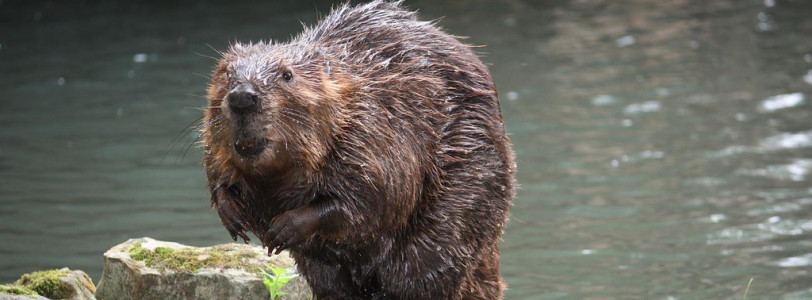Britain has been a lonely string of islands since the last Ice age, an isolation which grows more profound with the latest political rumblings. It's easy to forget that we're just a few nautical miles from a continent where there are bison, lynx, wild boar and wolves all free‐roaming, and most Europeans are carrying on with business as usual.
As a nation, we are largely blind to our relative ecological sterility. We have clear‐felled, mowed and ploughed these fair Isles beyond recognition to assert our control, and yet we continue to tut and wag our fingers at developing countries living with big cats and elephants.This hypocrisy is not lost on the world.
Our biggest terrestrial carnivore is the Badger. Let's think about that for a second. Now I love a badger as much as the next guy, but you don't often see a pride of badgers taking down a herd of Highland deer. It's sad to see the breadth of our intolerance for wild creatures.
And it's not restricted to gnarly grizzlies and the like, mammals smaller than the badger have been beaten to the brink. Pine martens, Scottish wild cats (the rarest cat in Europe) and even the humble otter have all been persecuted as 'vermin'.
Like most intolerance, it is largely born from ignorance. I have met grown human beings (my own age, too) who still fervently believe in the medieval superstition that badgers 'steal milk from cows at night'. Just allow yourself some time to process that image. This accusation has also been hurled at nightjars (a kind of nocturnal, insect-eating bird) and even hedgehogs (how do they reach…?).
Take the European beaver, a strict vegetarian. It is often accused of hunting fish or otherwise threatening fish stocks (and a reminder here that vegetarian is not the same as pescetarian!). They've also been accused by some particularly enthusiastic individuals of 'dragging lambs into the river'.
This is absolutely ludicrous. Any other European country would rightly laugh the accusation out of the room. Norway's salmon stocks for example, are widely acknowledged to benefit from the improved wetlands, water quality and breeding habitat created by beavers.
It's not just nature they help, either. Assuming fishing isn't your bag, they have a lot to offer in our fight against climate change. Their dam-building slows the flow of water throughout the landscape, preventing rapid flash‐flooding downstream. This reduces soil erosion, agricultural run-off and actively helps to store carbon through silt.
Over the pond, they already have much to offer in the prevention of forest fires. Their dams (you guessed it) use water to prevent things catching fire...it's not complicated! Wetter soils mean wetter plants, which are harder to light. Their dams create refuges for surrounding plants and animals, including any livestock that share the land.
Not every animal lost from Britain can be reintroduced to their whole former range, no-one is suggesting that mammoths need to be grazing our roundabouts. However, there is a growing realisation that animals do a far better job of managing our land than we do – and it’s cheaper, if nothing else. More to the point, if managed correctly and introduced in the right locations, it can help secure our own future. So, let's keep an open mind! And for goodness sake, no-one is interested in your cows.









0 Comments